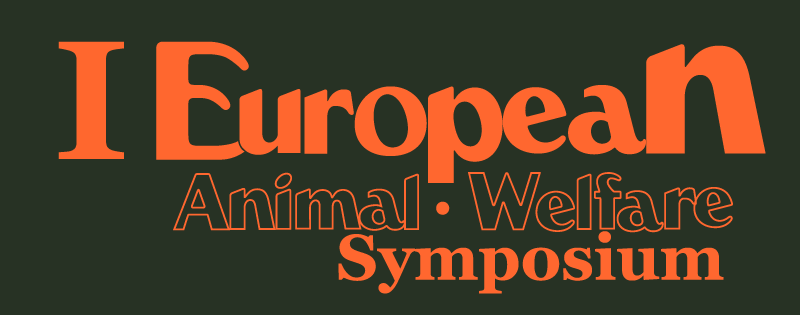
14 | NOVEMBER | 2022
First European Animal
Welfare Symposium
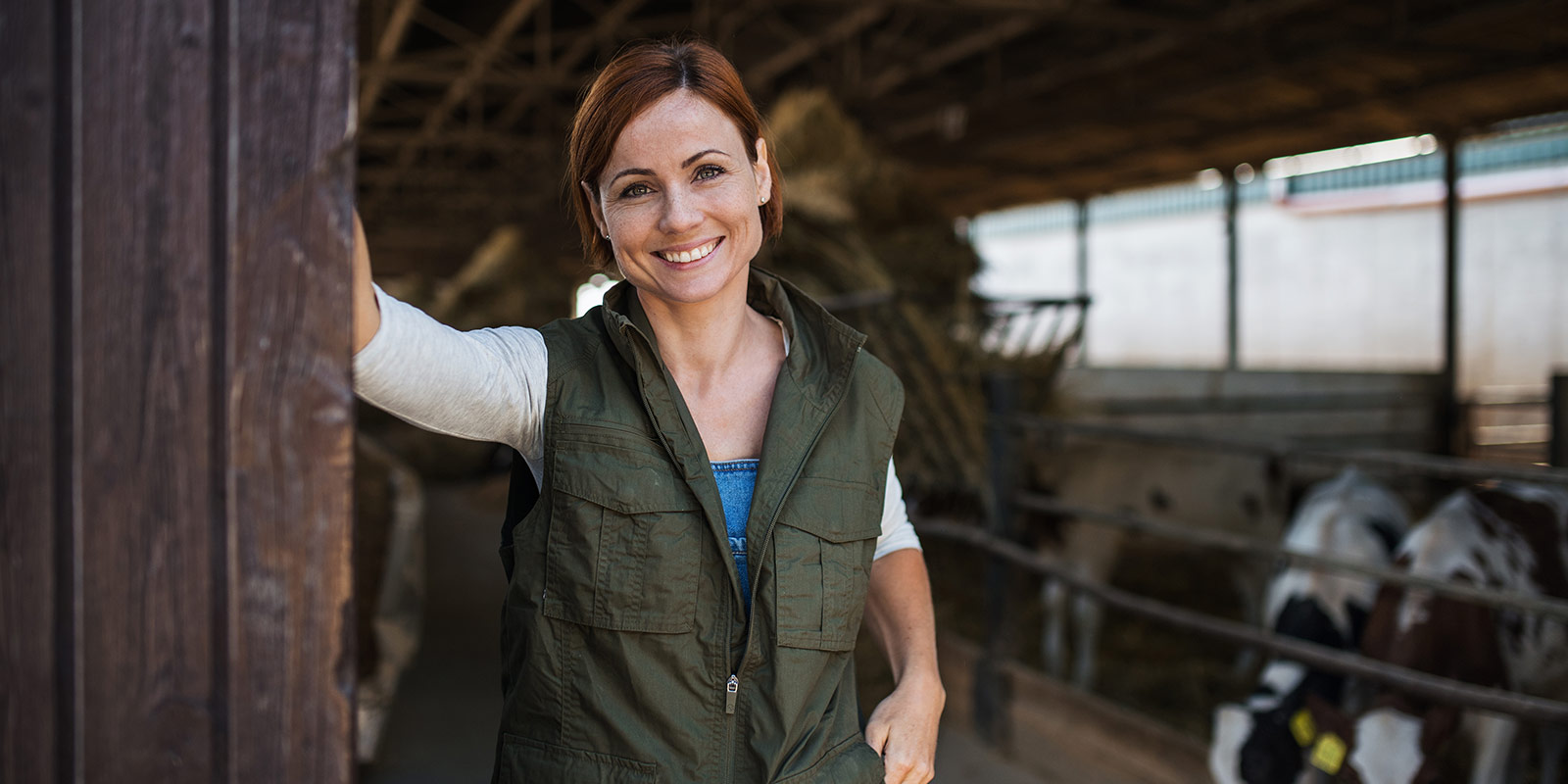
1st EUROPEAN ANIMAL WELFARE SYMPOSIUM
COMMITMENT
“Ensure
the welfare
of our animals”
This symposium arises from the need to create a meeting point to bring together all of the agents involved in looking after and ensuring the welfare of animals, and it aspires to be a relevant forum for all of the links in the meat sector production chain, particularly in the field of meat ruminants. It will be the world’s first meeting of these characteristics and dimensions to address all aspects that guarantee animal welfare from the scientific field.
The objective is for scientists, technicians, producers, certifiers, farmers and different stakeholders in the chain debate and analyse the animal welfare situation within the European Union from a scientific and technical point of view. Special attention will be paid to aspects related to the application of the legislative proposals that affect the farming reality and the contribution of accredited certification systems, such as tools to grant full objectivity guarantees in the assessment of the welfare of animals to all parties involved: farmers, distribution chain, consumers and Public Administrations.
The organitation and technical secretariat of the Symposium is the responsibility of the Spanish Association for Animal Protection and Welfare (SEPROBA) and the scientific committee is made up of six scientists and technicians with proven experience in the field.
The registration period closes on 19 September, until which date interested parties can submit their papers for dissemination at the Symposium.
The venue will be the Representation of the European Commission in Spain, located at Paseo de la Castellana, 46 in the capital. The event will be held on Monday 14 November this year.
This Symposium emerges as an annual European event and will be held at a different venue each year in order to foster scientific and technical debate in relation to European animal welfare.
If you would like to participate, you can register free of charge.

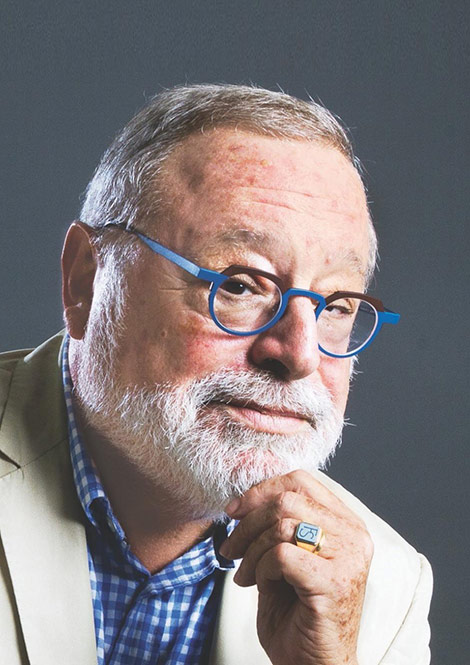
FERNANDO SAVATER
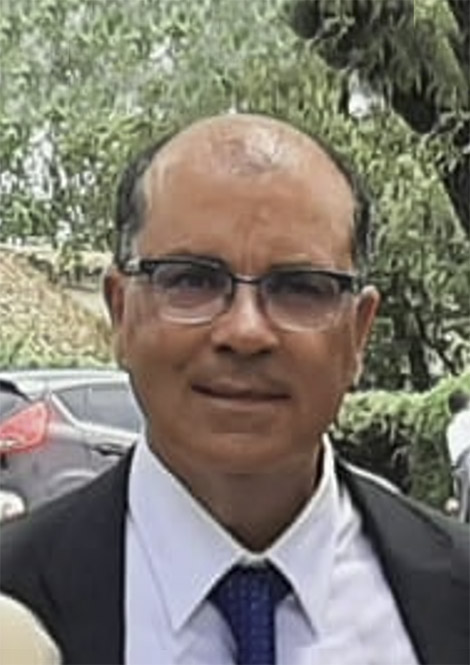
VICENTE JIMENO
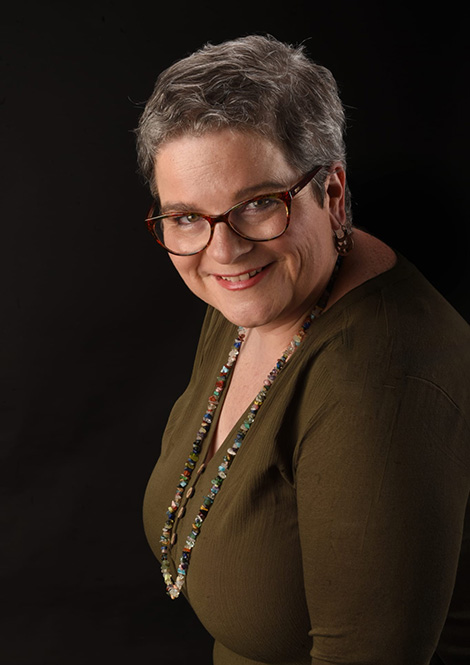
CAROLINA CUCURELLA
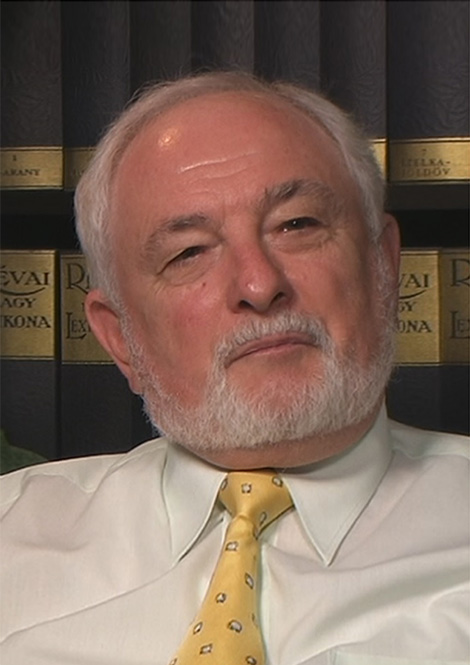
SÁNDOR KUKOVICS


FERNANDO SAVATER

VICENTE JIMENO

CAROLINA CUCURELLA

SANDOR KUKOVICS

SÁNDOR KUKOVICS
A PROGRAMME TAILORED TO THE NEEDS OF THE SECTOR
8.45am.- Opening and welcoming of attendees
9am.- Opening of the symposium by the representative of the Commission in Spain and representative of European Institutions (Parliament/Commission).
9.30am.- Speaker 1: Current situation of the EU policy guidelines for animal welfare (Copa-Cogeca member).
10.15am.- Speaker 2: Animal welfare of calves in the Mediterranean system (Dr. Vicente Jimeno).
11am.- Speaker 3: Carnivore ethics (Dr. Fernando Savater).
11.45am.- Coffee Break
12 Noon.- Speaker 4: Animal welfare in the Central European flock of sheep (Dr. Sàndor Kukovics).
12.45pm.- Free presentation of scientific-technical communications on the Mediterranean systems of beef, lamb and goat meat production.
2.15pm.- Networking lunch and poster session
3.30pm.- Speaker 5: EU legislation on animal welfare: current debates and future prospects (Carolina Cucurella, European Livestock and Meat Trades Union-UECBV).
4pm.- Speaker 6: Presentations of the market study of the European Programme 22/25 (Year 1) and the survey conducted on technicians of the sector (2022). They will be presented by each person responsible.
4.45pm.- Round Table: Scientific knowledge of ruminant animal welfare, need to verify the applicability of the proposals. Table made up of Speakers and Moderated by Dr. Miguel Ángel Aparicio.
5.45pm.- Conclusions.
5.50pm.- Closing Ceremony.
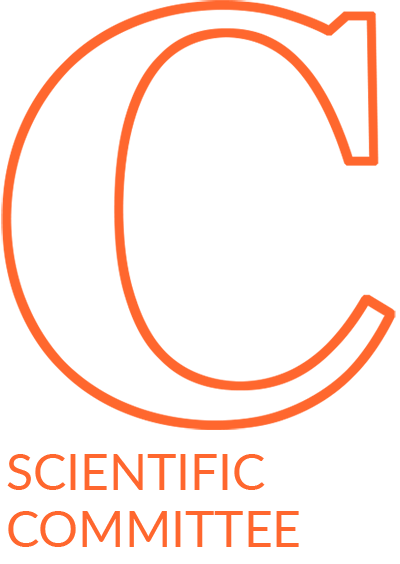
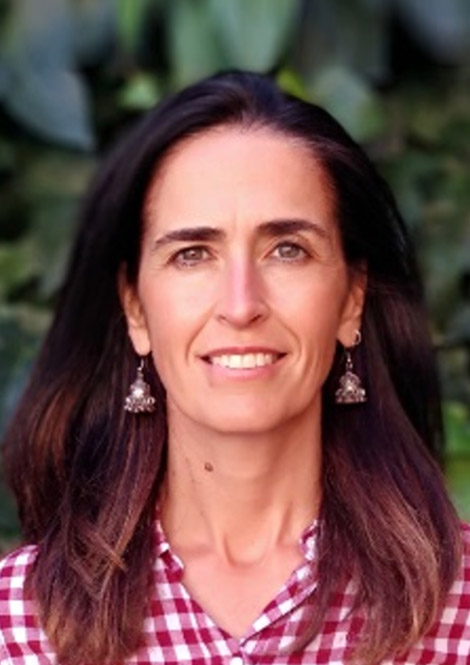
ISABEL CASASÚS
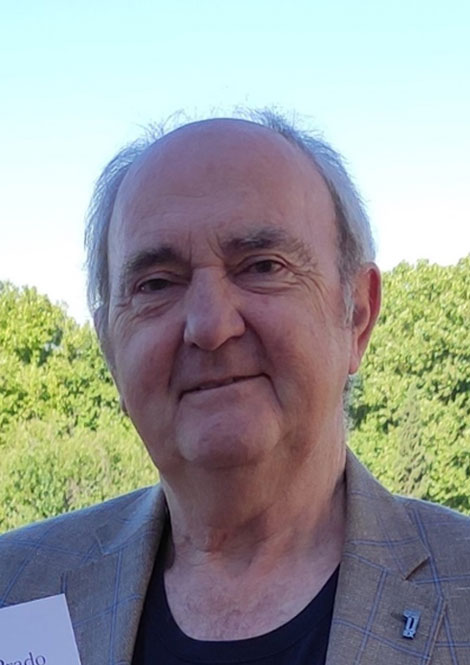
MIGUEL ÁNGEL APARICIO TOVAR
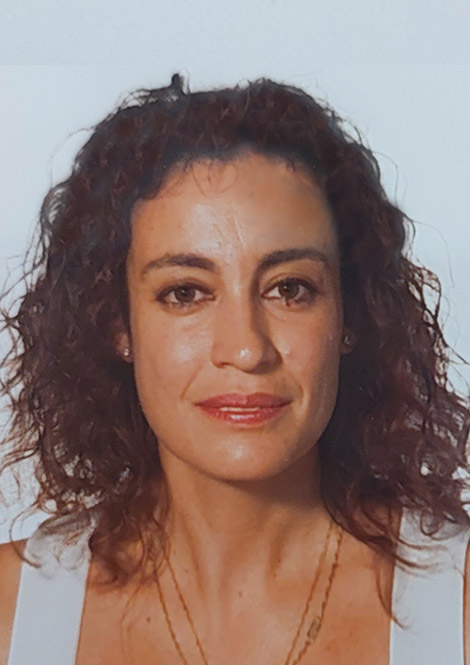
MARÍA JESÚS ALCALDE ALDEA
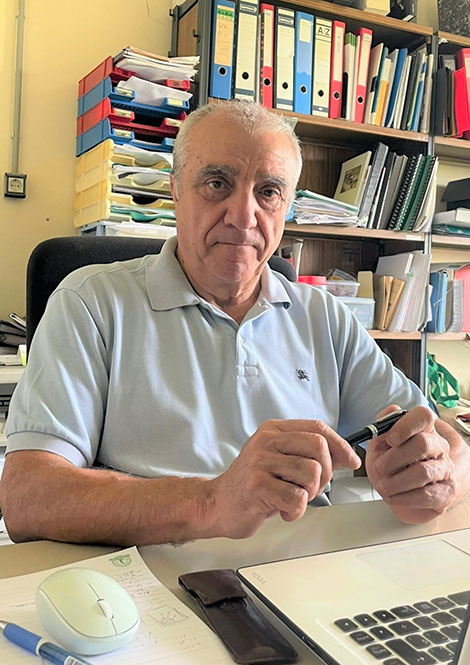
LUIS FERNANDO GOSÁLVEZ LARA

LUIS FERNANDO GOSÁLVEZ LARA
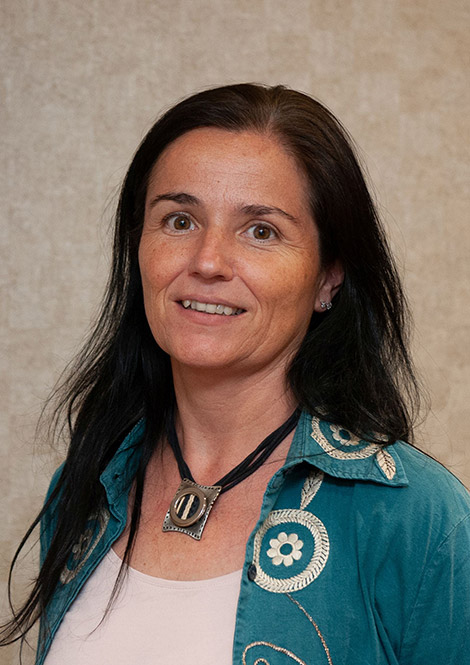
SUSANA ASTIZ

VICENTE JIMENO
VENUE AND EVENT DETAILS
DATE: 14 November 2022
Auditorio Duques de Pastrana
ADDRESS: Paseo de la Habana, 208 (Madrid)
ENTRANCE WILL BE SUBJECT TO PRIOR REGISTRATION ON THE FOLLOWING LINK:
If you have any queries, please send us an e-mail to:
secretaria_tecnica@bienestaranimaleuropeo.com

For guidance on balanced, healthy diets, please consult:
https://www.aesan.gob.es/AECOSAN/docs/documentos/nutricion/Come_sano_y_muevete_12_decisiones.pdf
| Cookie | Duración | Descripción |
|---|---|---|
| cookielawinfo-checkbox-analytics | 11 months | This cookie is set by GDPR Cookie Consent plugin. The cookie is used to store the user consent for the cookies in the category "Analytics". |
| cookielawinfo-checkbox-functional | 11 months | The cookie is set by GDPR cookie consent to record the user consent for the cookies in the category "Functional". |
| cookielawinfo-checkbox-necessary | 11 months | This cookie is set by GDPR Cookie Consent plugin. The cookies is used to store the user consent for the cookies in the category "Necessary". |
| cookielawinfo-checkbox-others | 11 months | This cookie is set by GDPR Cookie Consent plugin. The cookie is used to store the user consent for the cookies in the category "Other. |
| cookielawinfo-checkbox-performance | 11 months | This cookie is set by GDPR Cookie Consent plugin. The cookie is used to store the user consent for the cookies in the category "Performance". |
| viewed_cookie_policy | 11 months | The cookie is set by the GDPR Cookie Consent plugin and is used to store whether or not user has consented to the use of cookies. It does not store any personal data. |
2th EUROPEAN ANIMAL WELFARE SYMPOSIUM
is over
Interested in attending the
2th EUROPEAN ANIMAL WELFARE SYMPOSIUM?

Philosophy professor for more than thirty years specialised in the study of ethics and values.
His book, “Ethics for Amador” has been translated into more than twenty languages. He is also the author of “Tauroética”, a brief study into our relationship with animals.
He has been awarded a Doctor Honoris Causa by various European and American universities.
Spanish philosopher and writer dedicated above all to reflection on ethics. Professor of Philosophy at several universities, and later of Ethics at the University of the Basque Country, his extensive work of dissemination and cultural criticism has made him an essential reference for an entire generation in Spain. His work has also given rise to the rare phenomenon that books whose central theme is ethics have become almost best-sellers, as has happened with his Ética para Amador (1995) or El contenido de la felicidad (1996). He received honorary doctorates from universities in Spain, Europe and America.
Fernando Savater received, among other distinctions, the National Essay Prize (1982), the Anagrama Prize, the Ortega y Gasset Prize for journalism (2000), and the Fernando Abril Martorell Prize for "his contribution to the defense and dissemination of freedom, tolerance and human rights". In 2008 he was awarded the Planeta Prize for his novel La hermandad de la buena suerte. On February 29, 2012 he won the Primavera Novel Prize with "Los invitados de la princesa", stories in which he deals with culture and current social uses.

Vicente Jimeno graduated in Agricultural Engineering from Madrid Polytechnic University (UPM) in 1980. Until 1990, he worked in different companies of the animal nutrition sector in the area of ruminant feeds, in which he acquired extensive knowledge of the formulation of portions and feed for production animals. He joined the UPM in 1990 as an associate professor in the Animal Production Department. After holding several teaching positions, he has been a full professor at the Agronomy, Food and Biosystems Engineering Technical School at the UPM. In 1998, he graduated as a Vet from the Madrid Complutense University (UCM) and he got a PhD in Biological Sciences from the UPM in 2004.
Since joining the University, he has always remained in close contact with companies of the ruminant feed sector, which has enabled him to develop research projects applied to the research and development needs of these companies, focusing on the field of nutrition and ruminant feed.

She graduated as a Vet from the Autonomous University of Barcelona, having grown up in Chile, where she was always linked to farming thanks to the family firm that offered services and supplies to farmers and vets.
In 2001, she returned to her native Catalonia to train as a vet. In 2006, she joined ANAFRIC as Technical Secretariat to carry out functions of attention to members in terms of food safety regulations, animal health and welfare, exports and imports, as well as other more diverse functions, such as training, columnist for the Gremi de Carnissers de Barcelona journal, etc. She participated in regional and national work groups and sectoral tables, exports (“Meat Groups”) and work groups for the European Livestock and Meat Traders Union (UECBV).
In 2021, she joined the UECBV team as a Veterinary Adviser, in which she is responsible for managing the live animal traders section in terms of animal health and animal welfare in particular, which is the main priority for the meat farming sector due to the review of legislation in terms of farming, transport, slaughtering and labelling.

Prof. Dr. Sándor Kukovics spent 40 years in Research Institute for Animal Breeding and Nutrition (Herceghalom, Hungary) being responsible for small ruminants sector, edited 39 books, published more than 1,100 articles, having licences for 4 products. Beside research work he has been taking part in under- and further education of various universities in Hungary. Since 1996 he has been working as president of Hungarian Sheep and Goat Dairying Public Utility Association, and as the executive manager of Sheep and Goat Products’ Board (Hungary) since 2010. He is a member of Hungarian Society of Nutrition since 2016. He has organised 11 international conferences (including 6 world conferences) and 18 national conferences between 1984 and 2022.
Between 2015 and 2019 he served as vice president of EU COPA-COGECA Working Party on Sheep and Goats and he has been acting as member of Board of Directors within International Goat Association since 2016.

Isabel Casasús has a PhD in Veterinary Studies and is a researcher in the Animal Science Department at the Agri-food Technology and Research Centre (CITA) in Aragon. Her speciality is extensive ruminant production systems. Her research work integrates relationships between genotype, nutrition, management, pasture use and animal physiology (growth, reproduction, welfare), within a socio-economic and environmental sustainability context. She is the scientific head of CITA’s La Garcipollera Experimental Farm and presides over the European Federation of Animal Science (EAAP).
icasasus@cita-aragon.es
ORCID
iMarinaCITA

Full Professor of the Animal Production Department in the Veterinary Faculty at Extremadura University. Director of the Animal Production and Food Science Department at Extremadura University from 1987 to 1989. Director-General for Consumer Affairs (and Veterinary Sciences for Public Health) on the Extremadura Regional Council from 1991 to 1995. Director of Extremadura University’s Research Results Transfer Office from 1995 to 1989. Academic Member of the Royal Academy of Veterinary Sciences (RACVE) since 2005. Vice-Secretary of RACVE. Foreign Academic correspondent at the Mexican Veterinary Academy. Vice-President of the Spanish Animal Science Entities Union. President of the Spanish Association for Animal Protection and Welfare (SEPROBA).
He has published numerous papers in specialised national and international journals on Iberian Pork and Animal Welfare. Reviewer of international scientific journals. He has made contributions to national and international scientific conferences on the issues indicated. He has published various books and chapters of books. His latest scientific-technical book was called “IBERIAN POORK”. Zootechnical bases for the calculation of the nitrogen and phosphate food balance”, published by the Ministry for Agriculture, Fisheries and Food in 2020. Scientific head of the Animal Welfare Protocol of Sheep Meat Cattle- AWIS (Interovic).

María Jesús Alcalde Aldea is a professor of Animal Production at Seville University (Spain). PhD in Veterinary Sciences from Zaragoza University. She began her research activity in sheep meat, later including goat meat and other cattle species, such as pork and equine. Other research lines in which she works are: goat and sheep welfare, breed characterisation and sheep and goat farming systems and traceability through fat-soluble vitamins, such as biomarkers of animal diets in products of animal origin. She has published around 50 articles in high impact international journals and more than 120 communications in Spanish and International Conferences. Closely related to the Spanish Society of Sheep and Goat Specialists, having been a member of the Board, Secretary, President and she is currently its Vice-President. She has been a member of the INTEROVIC SPAIN Welfare Commitment Scientific Committee (AWIS) since 2018.

Dr. in Agricultural Engineering, UPM. Member of the European animal welfare platform 2017-2021. Guidance to Spanish sectoral associations (Asoprovac; Anice; Interporc; Provacuno; Interovic; Intercun; Propollo) in farming strategy and policy. Collaboration with public entities (Ministry of Agriculture, Catalonian Departments, Assessment Bodies (C-Leon), Lerida and Salamanca Regional Councils, EU Parliament and Commission), with Reports, Work Groups and Auditions.
Teaching and Research in production and animal welfare, participating in diverse training programmes for farmers, vets and agricultural engineers, as well as involvement in diverse public and private research projects with companies. Numerous scientific and technical publications, Leader of 7 PhD theses.
Drafting of the animal welfare certification specifications for the cattle(PAWS), sheep and goat meat (BAIE) sectors and now in the drafting of the industrial rabbit.

Susana Astiz has been a Scientific Researcher in the Animal Reproduction Department, INIA–CSIC since 2012 (Madrid, Spain). PhD in Veterinary Sciences from Madrif (UCM; 1995), PhD from Hannover University (1999, Germany), Master’s Degree in Biostatistics from UAB (2006; Barcelona, Spain) and holder of a ECBHM Diploma since 2007.
Professional experience in Individual Production and Medicine and consultant in Germany and Spain. Technical Manager for pharmaceutical companies and now, as a researcher, she works in a variety of fields: Animal Production, Reproductive Physiology and Sustainability in Animal Production Systems.

Vicente Jimeno graduated in Agricultural Engineering from Madrid Polytechnic University (UPM) in 1980. Until 1990, he worked in different companies of the animal nutrition sector in the area of ruminant feeds, in which he acquired extensive knowledge of the formulation of portions and feed for production animals. He joined the UPM in 1990 as an associate professor in the Animal Production Department. After holding several teaching positions, he has been a full professor at the Agronomy, Food and Biosystems Engineering Technical School at the UPM. In 1998, he graduated as a Vet from the Complutense University in Madrid (UCM) and he got a PhD in Biological Sciences from the UPM in 2004.
Since joining the University, he has always remained in close contact with companies of the ruminant feed sector, which has enabled him to develop research projects applied to the research and development needs of these companies, focusing on the field of nutrition and ruminant feed.
PRIVACY – FURTHER INFORMATION
This Privacy Policy forms part of the General Terms and Conditions that govern the www.bienestaranimaleuropeo.com website (hereinafter, the Website).
Last updated on 20th April 2022
In accordance with personal data protection regulations, and pursuant to the provisions set out in Articles 13 and 14 of the EU Regulation 2016/679, General Data Protection Regulation, by means of this Privacy Policy, the User is hereby informed of the following:
INTEROVIC DETAILS
PROVACUNO (hereinafter, the Controller), with registered address at Avenida de Pio XII, 6, 3º Planta, Postal Code: 28016 (Madrid) and Tax Code: G-87305009, is responsible for the processing of the data provided by users (“Users”) via the Website.
You may contact PROVACUNO via the aforementioned postal address, by e-mail to info@provacuno.es, or by telephone on 91 7129125.
We reserve the right to modify or adapt this Privacy Policy at any time, so we recommend that you review it.
WEBSITE CONTACTS, E-MAIL
The controller will process the identification and contact data provided by the user via the contact form, or by contacting the Controller via e-mail, along with other data included by the user. Furthermore, INTEROVIC AND PROVACUNO may anonymously process the user’s IP address, operating system or browser and even the duration of the visit.
Data will be processed for the following purposes:
Data processing is based on the data subject’s acceptance and consent: completing a form or clicking on the submit button implies that the user has been informed and has expressly given consent to the processing of his/her data based on this Privacy Policy.
All our forms include an * in relation to compulsory fields. If you fail to provide these fields or do not tick the acceptance of the Privacy Policy box, the information cannot be submitted.
As a general rule, the Controller will only process data provided by its owners. If third-party data is received, these individuals must be informed and their prior consent obtained, otherwise INTEROVIC and PROVACUNO shall not be held liable for any breach of this requirement.
INTEROVIC and PROVACUNO will not process data related to children under the age of 14. Therefore, the user must abstain from facilitating them if they are under this age or, where appropriate, facilitating data of third-parties who are under this age. INTEROVIC and PROVACUNO shall not be held liable for any breach of this provision.
INTEROVIC and PROVACUNO have adopted an optimum level of security for information, providing the measures and adopting the technical and organisational measures in accordance with the state of the technology so as to avoid the loss, improper use, alteration, unauthorised access or theft of Personal Data.
Users’ personal data may be transferred to:
Should any transfer involve an international data transfer using American applications, it will be governed by the contractual clauses approved by the European Commission.
The Data Protection Regulation provides the user with a series of rights, which INTEROVIC AND PROVACUNO, as controllers, must fulfil:
To facilitate the process and fulfil the principle of accuracy of the data, the Controller will be grateful for the communication of any modification to the data.
To exercise the aforementioned rights, the user may request a form from INTEROVIC and PROVACUNO or use those prepared by the Spanish Data Protection Agency or third parties. These forms must be signed electronically or be accompanied by a photocopy of the ID Card. In the event of representation, a copy of the user’s ID Card must be provided or electronic signature by the user. Forms may be submitted in person, sent by letter or e-mail to the Controller’s address indicated at the start of this text.
Depending on the right exercised, INTEROVIC and PROVACUNO will reply within one month of receipt of the application, and within two months if the issue is extremely complex, whereby the user will be notified.
This Website uses Cookies. Should you require further information, please access our Cookies Policy.
INTEROVIC
C/ Agustín de Bethancourt nº 17, 6ª Planta
28003 – Madrid
Tfno: 91 833 64 72
E-mail: interovic@interovic.es
PROVACUNO © 2019
Avenida Pio XII, Nº 6 – 3ª planta
28016 – Madrid
Tfnos: 91 71 291 25 | 696 32 65 62
E-mail: info@provacuno.es